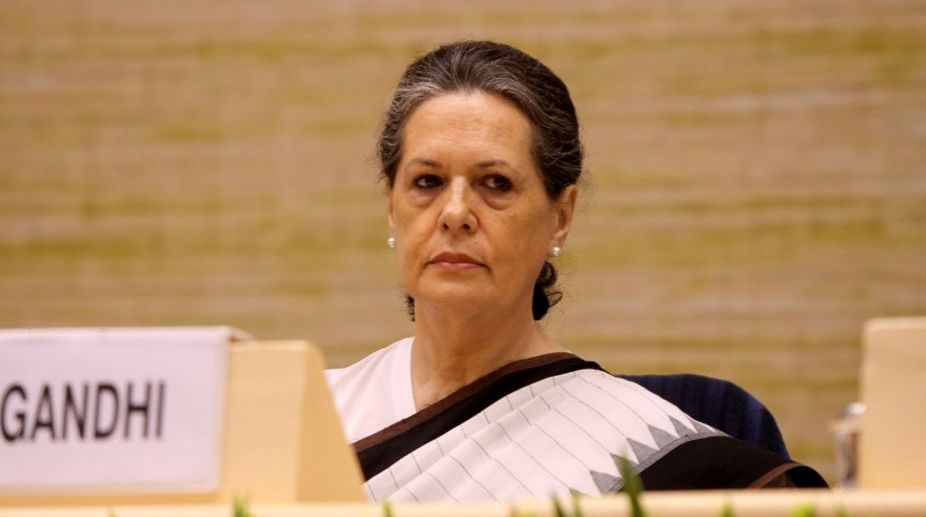No one is above the country, but Modi calls himself great: Sonia
"The country is not the property of a few but belongs to all of us," the Congress leader asserted.

Sonia Gandhi (Photo: SNS)
The quality of mercy may not be strained, as the bard had written but established jurisprudence would appear to have been turned on its head by former apex court judge, Justice KT Thomas, writing to Sonia Gandhi to display “magnanimity” to those convicted for assassinating her husband and who have since tendered mercy petitions to the President.
For the judge who presided over the Bench that had upheld their conviction, his apparent change of heart is not just unusual ~ it also suggests he was party to a miscarriage of justice. The years may have mellowed the emotions of the respected judicial luminary for he now empathises, with those who have spent long years incarcerated.
But is the widow of a murder victim entitled to forgive? True that Justice Thomas’ letter to the Congress president does not suggest that she is authorised to set the convicts free, yet his contending that her opinion would influence the government’s decision on their mercy petitions is troublesome: does it confirm a “personal” angle to interpretation of the provisions of the law?
Advertisement
What would Justice Thomas say if a person in similar circumstances were to demand an enhancement of punishment?
Can the system continue to provide for the death penalty if a judge is entitled to subsequently entertain second thoughts? Mrs Gandhi is being placed in an avoidable awkward spot ~ if she does not “show magnanimity” will she be deemed cruel, vengeful? And it must be remembered that it was not Rajiv Gandhi alone who was killed that evening in Sriperambudur.
Justice Thomas has stirred waters he will be unable to calm, and in that process has opened a proverbial Pandora’s box ~ there’s no telling how many others will now be asked to be magnanimous.
Even worse is his now airing some misgivings about the convictions and also hinting that the verdict was skewed. There is little need to quibble over details, but Justice Thomas’ harbouring doubts casts serious aspersions over the professional integrity of the two brother judges on the Bench; particularly his hinting that the judicial process might have unraveled differently had an ex-prime minister not been the prime target of the assassins.
Were the others “blown up” of no consequence, is the severity of a crime assessed on the “status” of the victim? In the process has been junked the quality of the investigation ~ if it had serious shortcomings Justice Thomas should never have upheld the convictions.
The words of a minister at a Christian marriage: “Speak now ~ or forever hold thy peace” ought to have kicked in. The argument advanced by some of Thomas’ admirers that he was now speaking as a common citizen carries little weight ~ no person who has ever held high office can return to “normality”. That burden cannot be discarded.
Advertisement